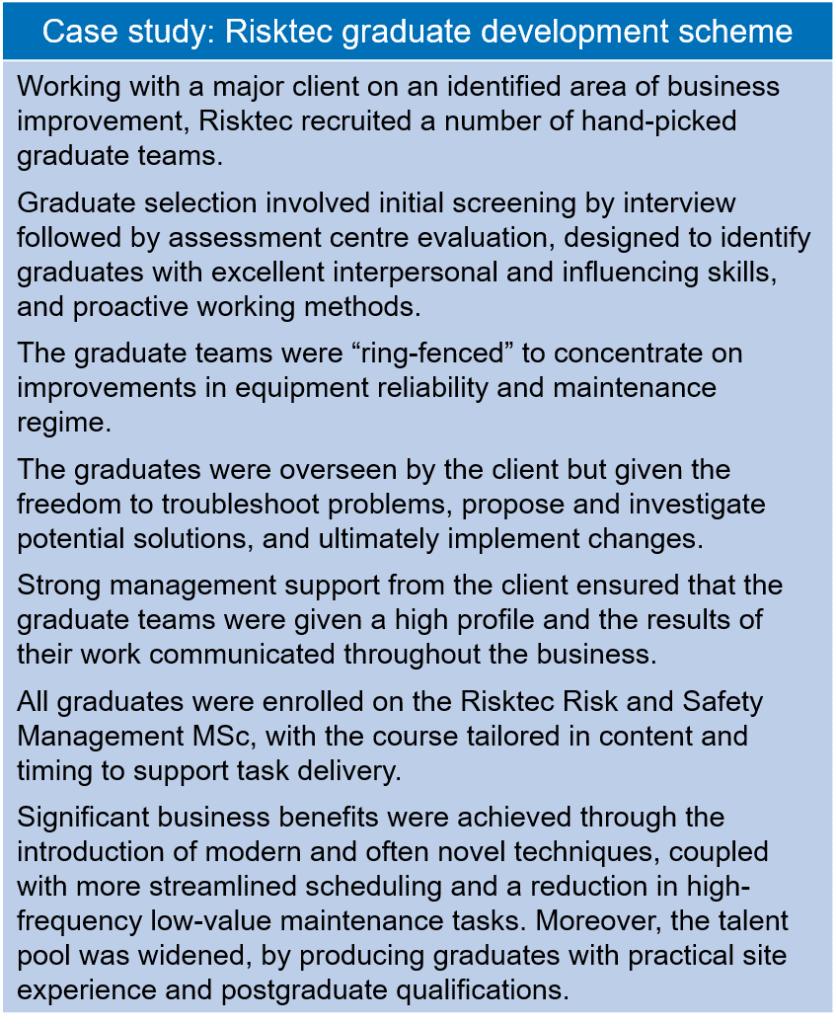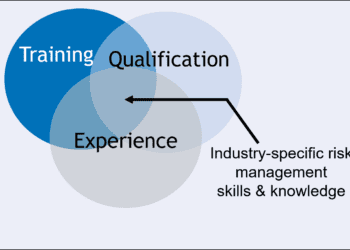By degrees – making a graduate programme work for you
Graduate training schemes are common in most large organisations and can be a good way to attract talent and provide a basic grounding in the business.
Traditional graduate training schemes typically last one or two years, and involve rotation through a number of departments within the business. In each, the graduate is introduced to operations, following a structured training plan, often shadowing experienced colleagues, before moving on to the next department. Whilst this broad understanding of the business can be beneficial to a future career, the graduate emerges from the scheme with limited practical experience and may be ill-equipped to make a meaningful contribution to the business for some time. Moreover, many graduates can become frustrated or disillusioned by constant work-shadowing, fuelling the risk of dropping out.
HARNESSING POTENTIAL
Many companies underestimate the capabilities of graduates and assume tacitly that, until they have completed the graduate training scheme and have gained experience, they are of limited benefit to the business. However, given the right opportunity and a degree of freedom, graduates can make a contribution to the business in a way that established employees cannot.
Graduates have one significant advantage over long-standing employees: their lack of preconceived ideas means that they will ask simple questions that could challenge the basis of accepted working practices. By focusing on a needy area of the business and harnessing the enthusiasm of a small team of graduates, it is possible to deliver tangible benefits.
Some organisations foster a natural reluctance to embark on such an endeavour in the belief that it will create more work downstream – but this barrier evaporates if the graduates are also empowered to implement agreed solutions. And if a structured training scheme is operated in parallel, the graduates will emerge fully trained, with a thorough understanding of a critical business area and significant practical experience (see Box 1).
SUCCESS FACTORS
Key requirements for this type of scheme are:
- Graduate selection is fundamental; although academic grades are important, the graduate should have drive, enthusiasm, and strong interpersonal and influencing skills.
- An area of business should be identified that is ripe for improvement and relevant to graduate development.
- The graduate team should be free from outside distractions, i.e. the team must be “ring-fenced”.
- Strong leadership and support should be given to the graduates, whilst giving them the freedom to identify improvements, propose solutions and implement agreed changes.
- Structured training should be carried out in parallel, with an integrated training schedule that aligns with the tasks being undertaken.

CONCLUSION
Graduates have huge untapped potential. Rather than being an initial burden on an organisation, they can be an asset in their own right if harnessed intelligently and given the freedom to think for themselves.
This article first appeared in RISKworld issue 25








